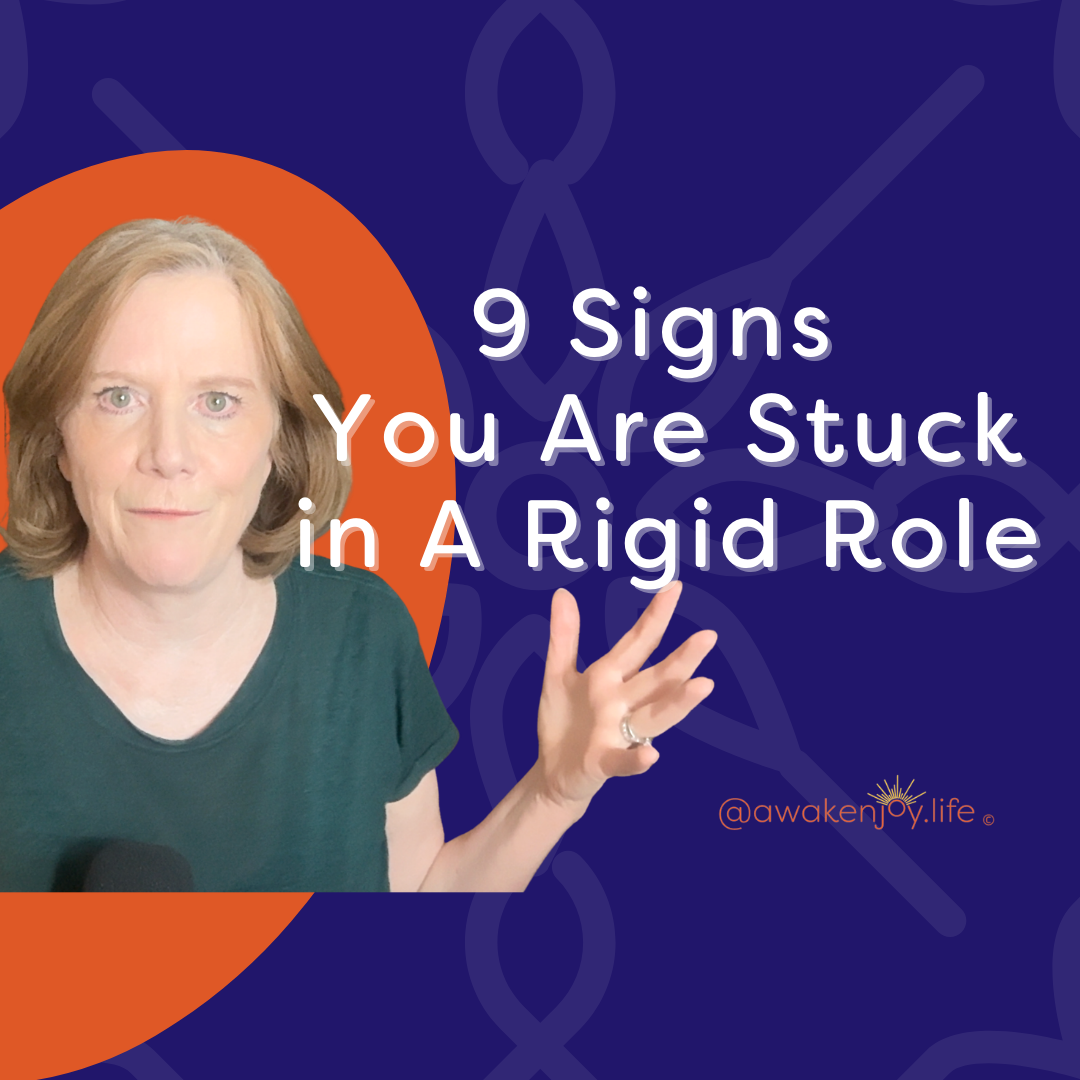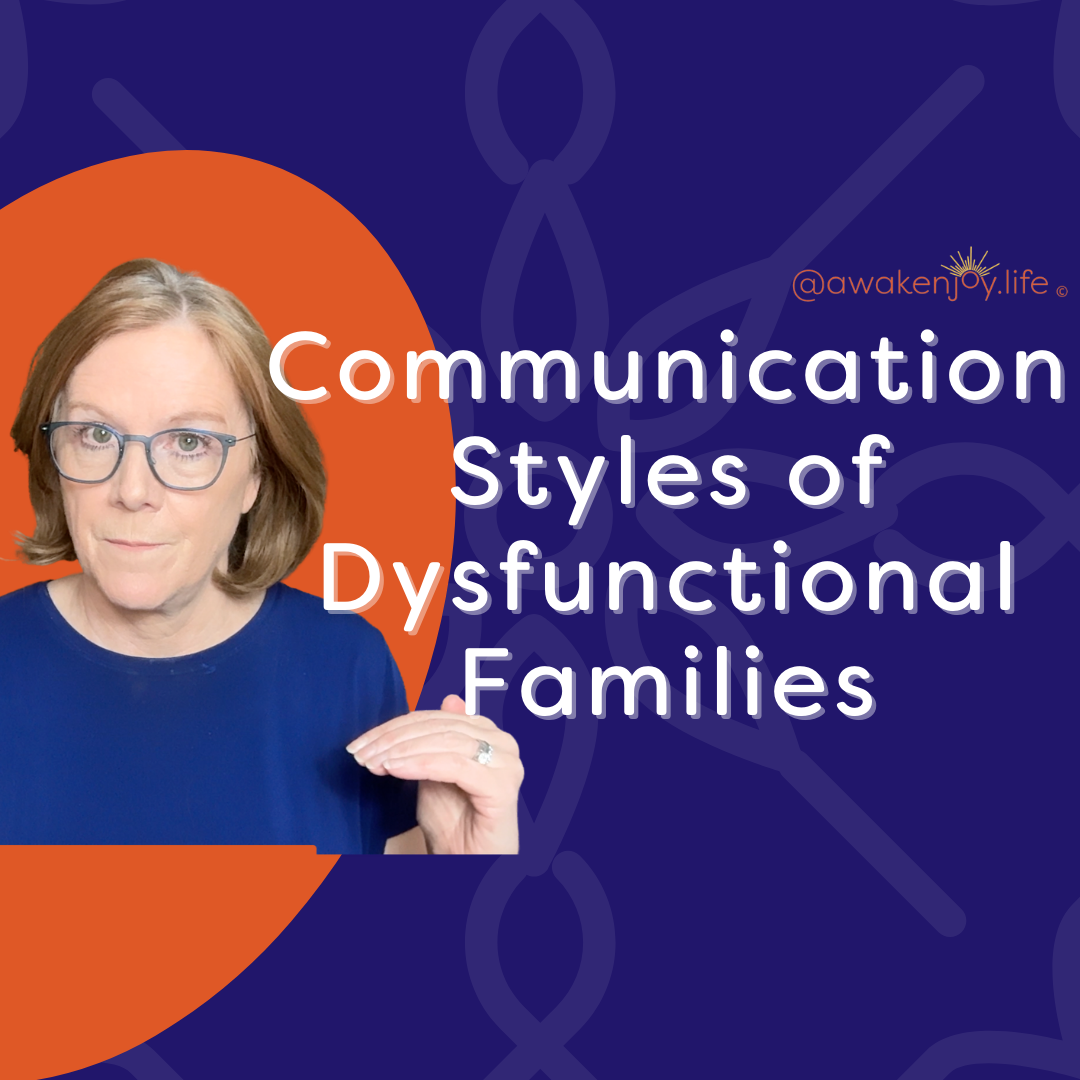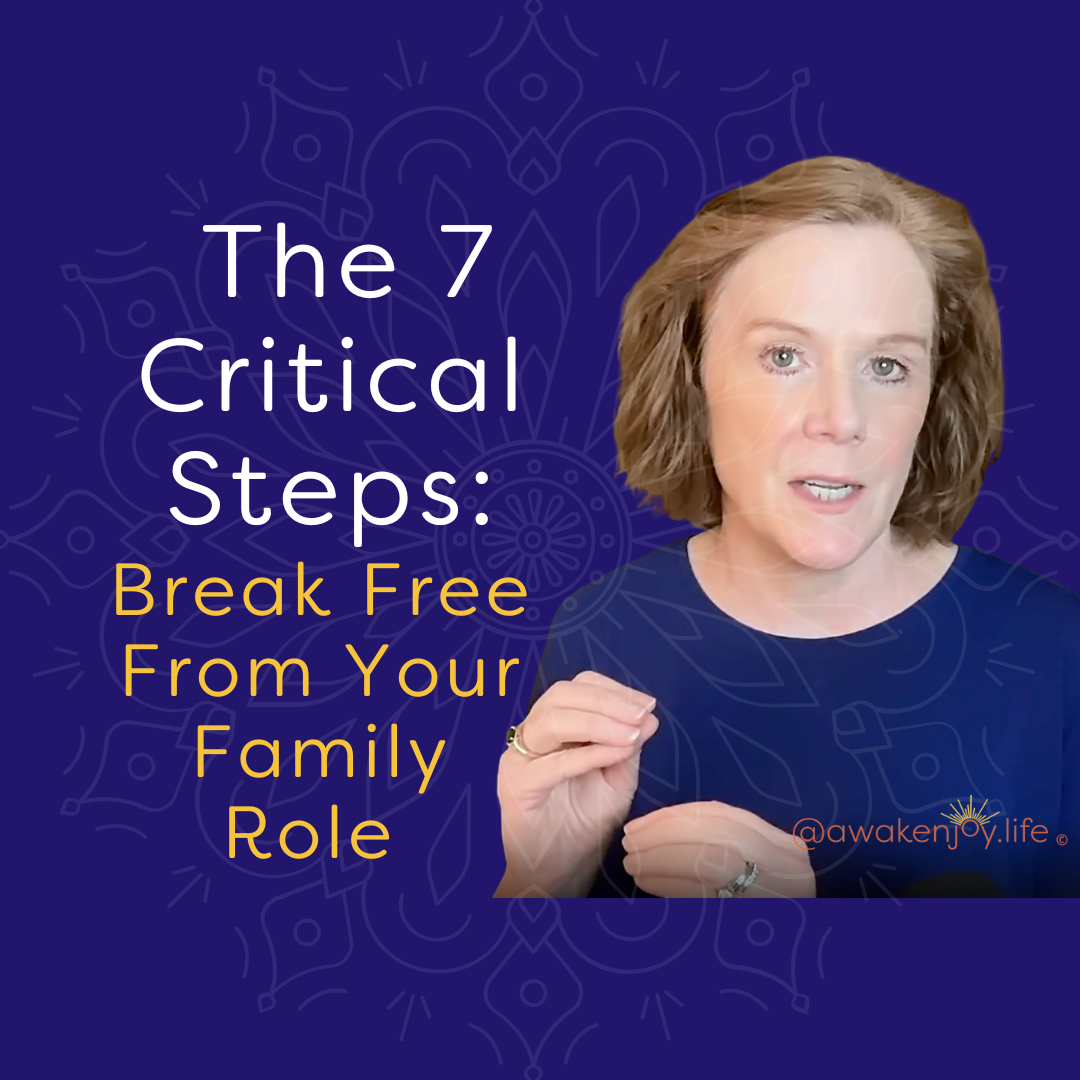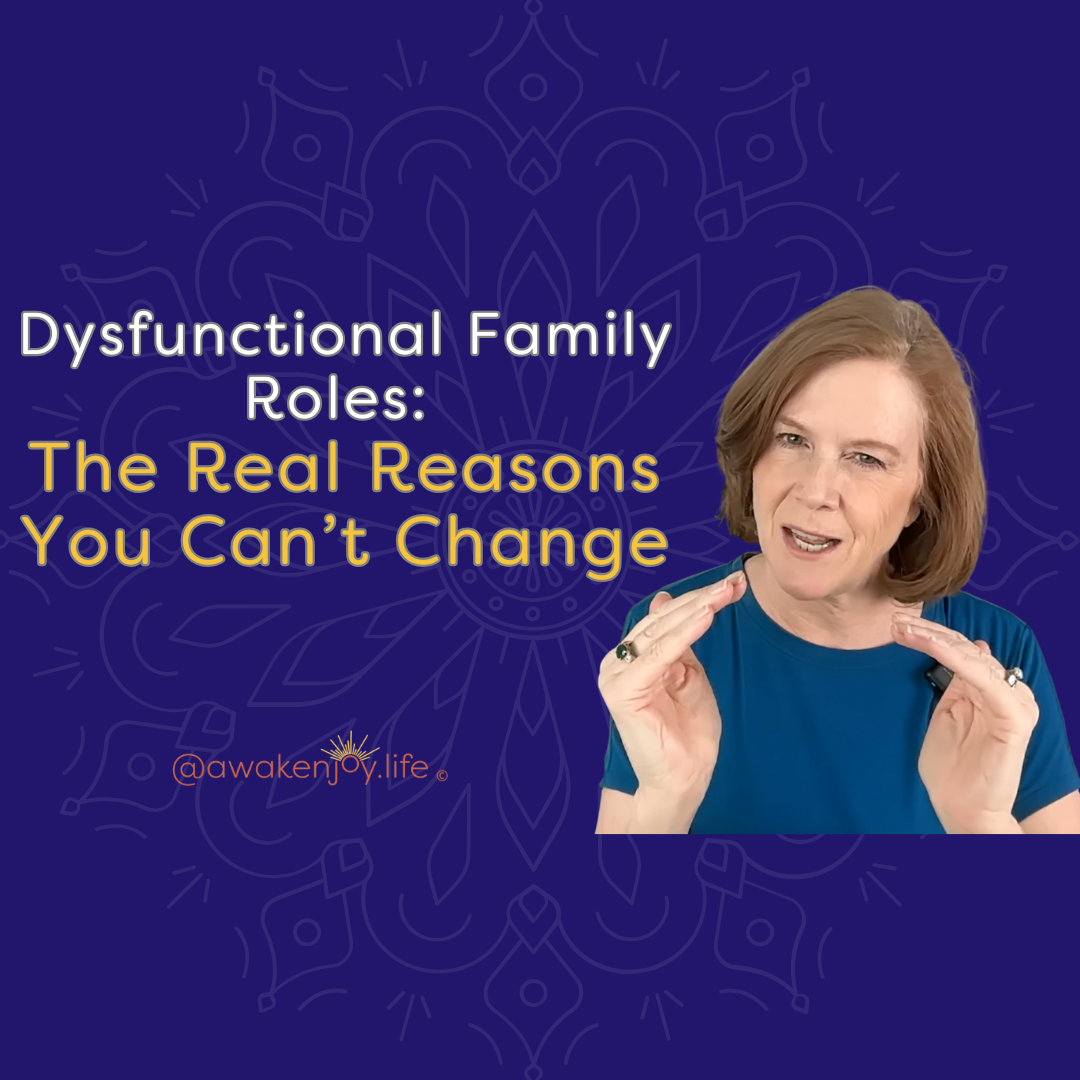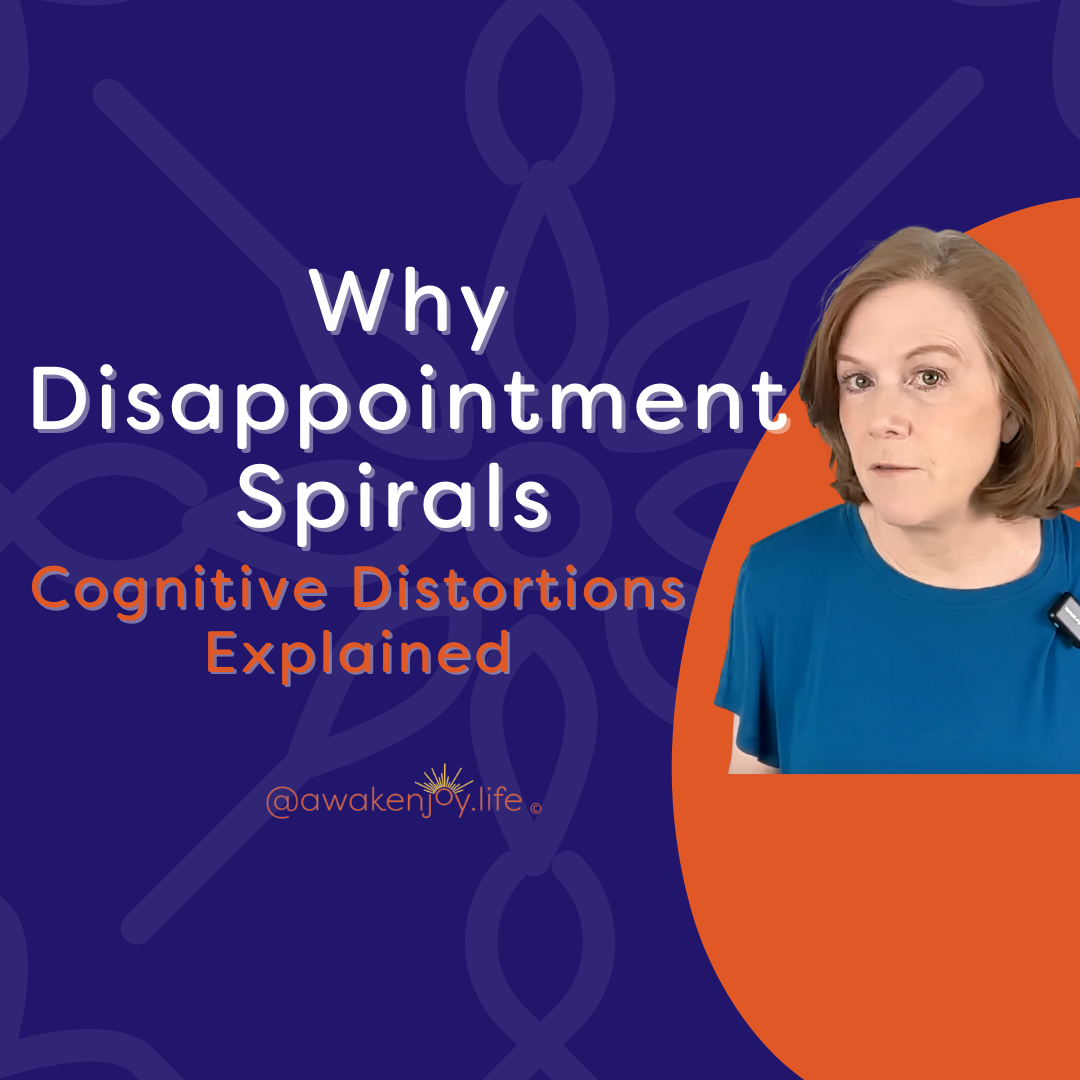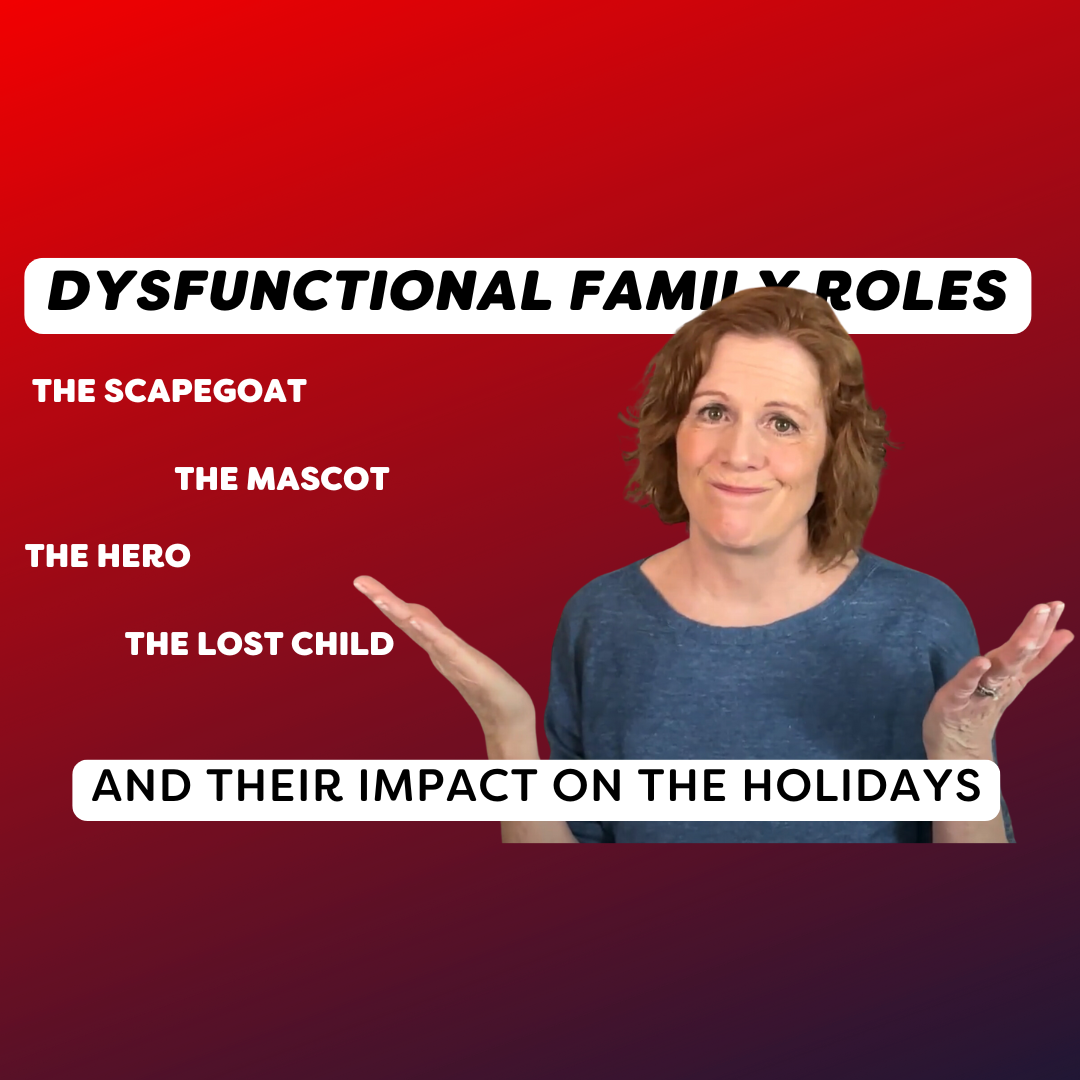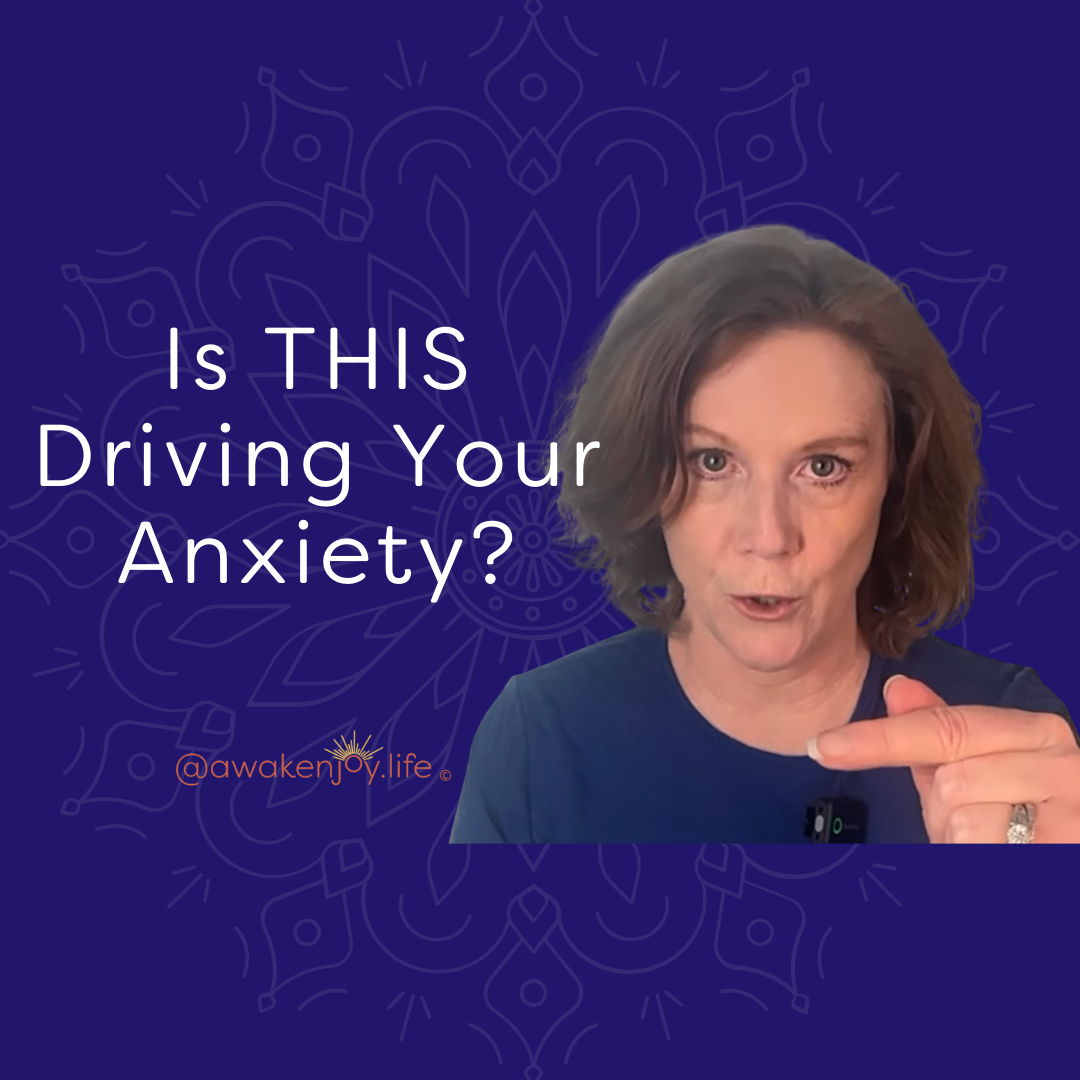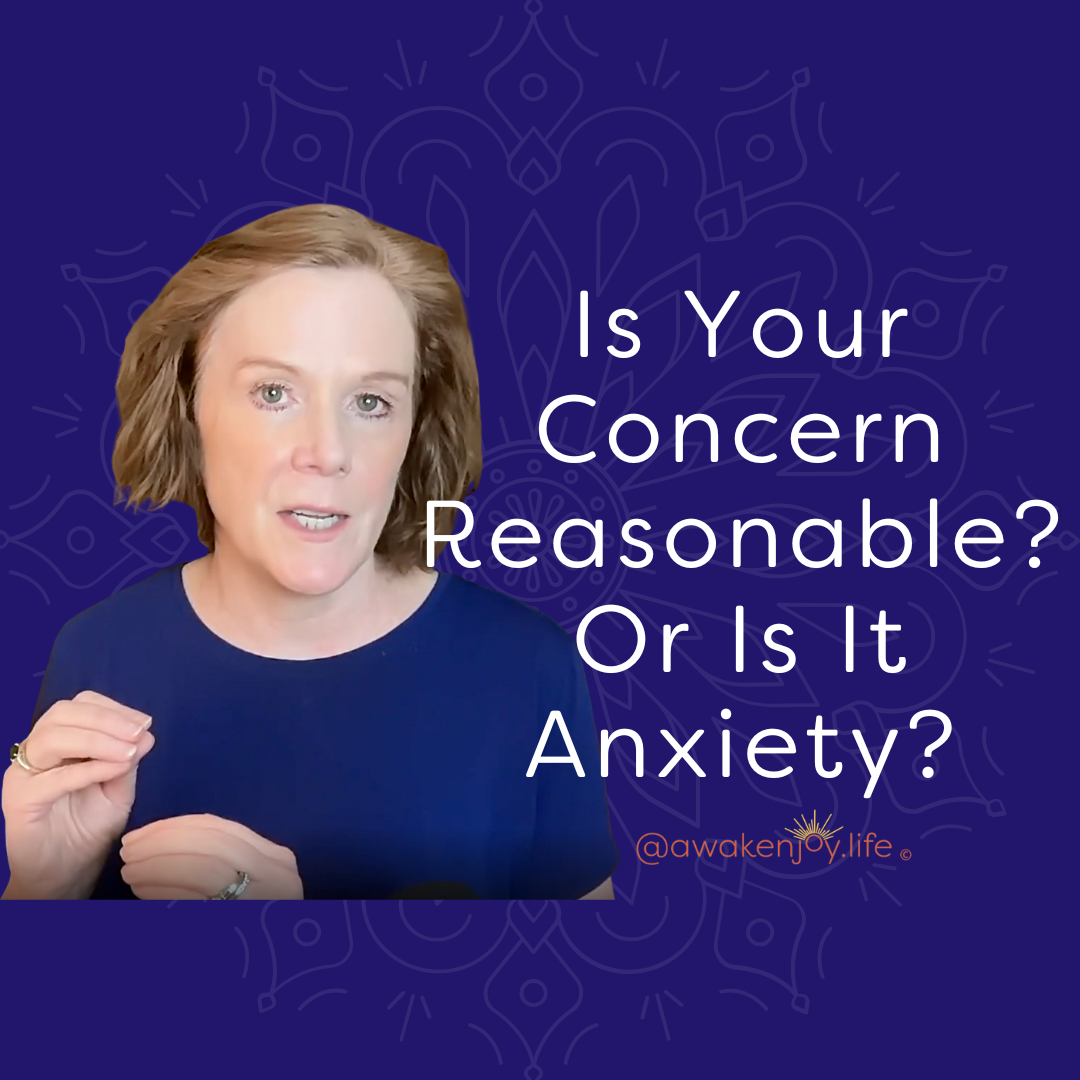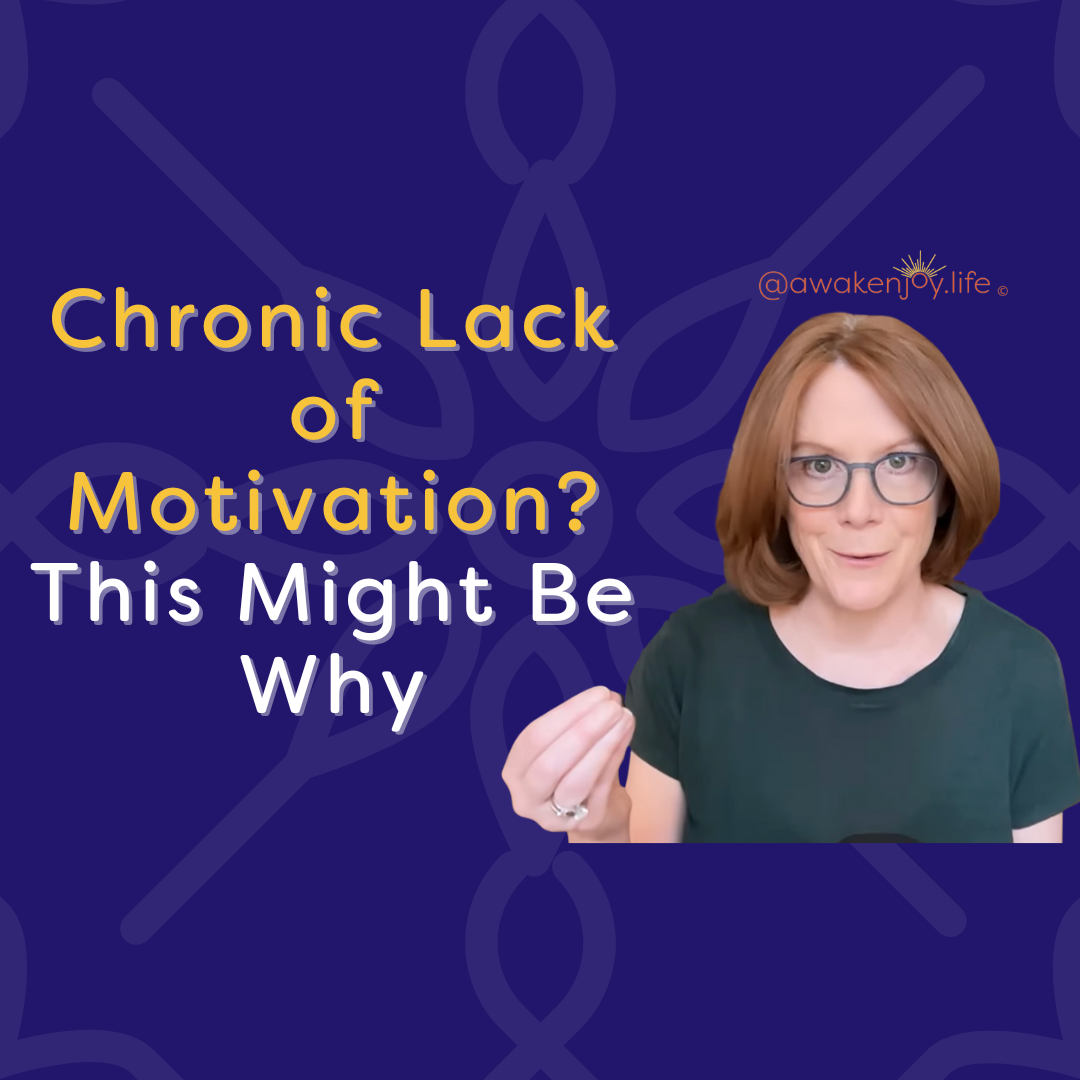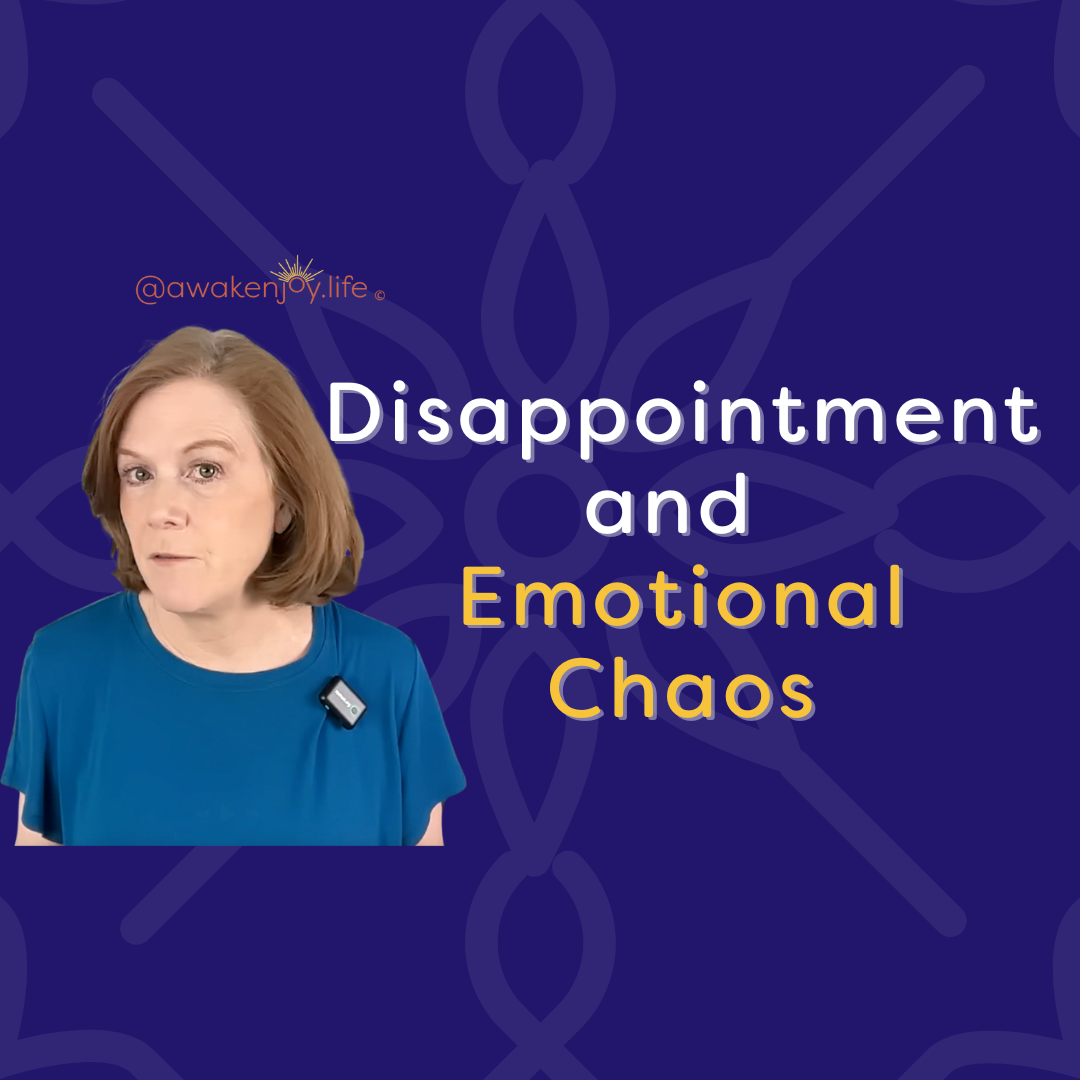5 Tips To Help Anticipatory Anxiety

Anticipatory anxiety is a movie in your head that is making you miserable.
So, first, a secret:
All anxiety is anticipatory.
Now for people who experience somatic anxiety, which means the physical symptoms of anxiety, they'll say, “No, that's not true. I’m not anticipating anything, I’m just feeling anxious.”
But even when those feelings are in your body, your brain is interpreting these feelings as a problem or as indicating a problem. (And somatic anxiety is complicated! So, more on that topic is here:
Somatic vs Cognitive Anxiety).
So a feeling of dread might lead you to think,
“Okay, I'm not worried about anything... but there must be something I need to worry about in the future because my body is feeling this way.”
So, yes, the somatic feelings are happening right now, but they are connected to the anticipation of some type of danger.
What is Anticipatory Anxiety?
Anticipatory anxiety is any kind of anxiety that is tied to a future event. Sometimes it is a major event that you're worried about, and most people have that once in a while in their life.
Other times it could be minor events, or it could be something that's related to a very upsetting or traumatic incident from your past.
One problem with anticipatory anxiety is that if it is left unchecked, it might apply to more and more things, and, eventually, you develop
a fear of feeling fear. You develop an anxiety about, “Oh no, am I going to get anxious?”
Let’s use the example of social anxiety to explain anticipatory anxiety further. People with social anxiety are not only anxious when they are at a social event. Their anxiety starts before the event, well before it. And often it is a fear that they will show signs of anxiety at the event and other people will notice. Or it might be a fear that they will say something stupid. And thinking about these possibilities will make them even more anxious now, sometimes weeks or months before the event.
A common response to this anxiety is for the person to decide not to go to the event. When they make that decision, they probably feel temporary relief. But, their self-criticism might kick in in a very strong way. They will feel more and more stuck in a rut. But the relief of that decision to avoid is very reinforcing, and it teaches the “old brain” that avoiding is the right answer. [My blog next week will be on the Avoidance Anxiety Cycle, so check back!].
As I mentioned earlier, anticipatory anxiety is part of almost every single anxiety disorder. Anticipatory anxiety is not a diagnosis in and of itself. Rather, it is an expression that describes the phenomena of the worrying.
Now, anticipation is not all bad. In fact, the human brain is an anticipatory machine. That is one reason humans have been so successful on this planet.
When we see a potential problem coming up, we can think through steps to take care of it. That is healthy, reasonable, adaptive. A little bit of anxiety can be helpful. The innate biological responses of adrenaline kicking in a little bit helps us focus and plan. But when too large of a fear response kicks in when the fear is not present, it can lead to overwhelm, shutdown, or panic.
[Last week’s blog and video were on the difference between fear and anxiety. If you haven’t read it, you can access it
here].
In short, fear is in the moment. Anxiety is anticipatory. Let's say there's a dinosaur right in front of you, boom, your fight, flight, freeze response kicks in. You run, freeze or fight. That's appropriate.
But when you have the thought of that dinosaur attacking you (or the thought of whatever it is that you're afraid of), your body is responding almost as strongly as if it was actually happening. But it's not. There's nothing to flee from physically. There's nothing to physically fight, and there's no reason to physically freeze. Doesn't mean we don't do one of those three things, but there's no immediate danger present to cause that.
So let's talk about the
Anticipatory Anxiety Cycle.
The threat of a future problem creates anticipatory anxiety. There is an immediate chemical response in your body. Those fight, flight, freeze chemicals make you feel, “I have to do something!
Now!”
And since there is nothing to flee from and nothing to fight, that feeling often can lead to either a compulsive behavior or avoidance.
And then you get temporary relief from the compulsive behavior or the avoidance. This temporary relief reinforces this cycle and actually keeps the fear going. The temporary relief is training your old brain that that is a good response, the right response. Your old brain learns: “If this ever comes up again, that is the response I’ll choose.”
So eventually, this cycle leads to that fear of fear.
It’s not just a fear of one event, it's fear of any event like that. And you begin to experience those anxiety symptoms earlier and earlier and earlier. And if we're anxious about future events, but we begin to anticipate it and feel the anxiety really, really early, we will always be feeling anxiety because there will always be something somewhat uncertain. There'll always be a future event. There'll always be something we don't like. So the anxiety just really feeds on itself.
Alright, so what can help? I am going to go through five tips, but I just want to say they are all interrelated. They all go together. Working with them as a whole will be the most helpful for you.
Tip #1: Keep the word ANTICIPATORY in mind.
When you feel anxiety, remind yourself that what you're imagining is not actually happening. Remind yourself that you are anticipating something that feels scary, but it is not scary now. It does not require your fight, flight, freeze chemicals now (and probably doesn’t require them at the time of the event either).
Now, anxiety convinces us fully that it (the anxiety) needs to be there. It will convince us that this horrible thing is going to happen, and that you
must worry about it now.
But this is a falsehood. It's actually not true. If there is something to do, you can do it (I call that productive worry). But that is not what develops into anxiety. The unproductive worry – the worry about things that you can’t do anything about – that is anxiety.
Tip #2: Mindfulness
Once we recognize that our anxiety is about something that is not happening now, we can bring our attention back to the present moment. Grounding techniques and diaphragmatic breathing are very helpful for this. Be aware of your feet on the floor; Look around the room for three items that are blue, three items that are red, three items that are yellow. These kinds of exercises really ground us in the present moment.
Anticipatory anxiety is the opposite of being mindfully present. If we're mindfully aware with our senses, then we can't be lost in the anticipatory anxiety. So weaving mindfulness practices into your day on a regular basis is very, very helpful.
These practices aren't going to immediately solve this problem for you. It doesn't happen that way. But the gradual process of bringing your mind back to the moment with sensory awareness will make an enormous difference over time.
I do want to mention I have a free webinar called
Rewire Your Brain for Joy and Confidence. And it's all about using these kind of tools to rewire the pathways, right? Because if we have automatic anticipatory anxiety or automatic fear of an event or fear of an item or an object or anything, if we have these automatic responses, we are creating super highways in our brain.
The synapses get myelinated together. It actually is a superhighway. Those neurons and synapses get used to talking to one another and they do it super fast, before you can intervene. So the matter of retraining your brain really means bringing in some of these practices regularly. (A lot of people have found that webinar really helpful, so feel free to check it out!).
Tip #3: Practice somatic methods of calming yourself regularly.
When that physical response to the anxiety kicks in, say to yourself, “Okay, I don’t need this physical response. I'm going to bring my mind back to the moment.” And then use physically calming techniques: diaphragmatic breathing, petting an animal, walking in nature, listening to the birds. Utilize any natural method of lowering your blood pressure, lowering your pulse rate, relaxing your muscles… (Not alcohol or medications – these are biphasic… let me know in the comments if you’d like a longer explanation of this!)
Tip #4: The Movie Technique.
So we talked about how your brain is creating a story when you have anticipatory anxiety. It is usually a pretty unpleasant story, possibly catastrophic.
Let's see if you can come up with a different story and a different ending. Your inclination when I suggest this might be to create a really positive ending, which is ok, but then your brain might kick in and totally discredit that ending. Thoughts like, “No, that's never going to happen to me. I'm never lucky.” Or, it might be “No way, I'm not good enough,” or “I don't deserve that,” Whatever your habitual self-criticisms are, they will kick in if you try to make that ending too good.
So let's find a neutral ending. With most movies we watch or novels we read, some good things happen to the main character, and then some not so good things happen. Then good things and then not so good things… this is what makes an interesting story.
Stories that are neutral are not very interesting. Your brain won’t go there naturally. Yet very often things are neutral.
So, try and see if you can come up with a neutral story. And bring in the awareness that your brain might be avoiding the neutral story because it doesn’t like to be bored! A catastrophic story is SO much more interesting! But, as you well know, those catastrophic stories that our brains generate cause a lot of other problems for us. And, they make our lives pretty miserable.
Now, the movie technique can be used even more extensively when you actually visualize watching a movie of a character that looks like you, but isn't you, going through the same kind of worries and concerns that you're going through. If you really take some time to picture this, you probably will feel compassion for the character going through what you are going through.
You know why? Human life is hard. We have to deal with a lot of hard, uncomfortable things. There is a lot of uncertainty. There are many things we want to control that we can't control.
So when you see it as a movie, you're more likely to have compassion for the character and then you can try to bring that compassion towards yourself. And self-compassion has actually been shown to help lower anxiety.
Tip #5: Meditation
Many people don’t want to hear this suggestion. People with a lot of anxiety have a hard time meditating and will often say, “I can't meditate.” (And I do have a video on this that I will link here). And one reason meditation is hard is that it is boring! Being bored can make people feel anxious. Yet, increasing your tolerance to that boredom, and increasing your tolerance to feel your anxiety without doing anything, over time, can help enormously.
And when I say meditation, I want to clarify something. A lot of people use guided meditations. These can be very, very useful. Truly. But I see the guided meditations more in the category of my tip number three: generally they aim for somatic relaxation. Guided meditations help you feel calmer. They guide you and help you physiologically relax.
Pure mindfulness meditation is where you sit, let's say for 10 minutes in silence, staring at a spot on the floor or with your eyes closed, and you continually try to bring your attention back to the present moment. This is hard, but it has benefits beyond the physiologically relaxing meditations. It dramatically increases your ability to stay present with whatever is happening – the good, the bad and the neutral. It significantly increases your ability to be aware of your thoughts. The Observer Mind is the part of our brain that observes what the rest of the brain is doing. The Observer Mind observes our thoughts. “Oh, there I go again, worrying about that again.” “Ah, here is the old ‘I’m not good enough theme.’
Yet, over time, you will begin to see things so much clearer. We strengthen our ability to differentiate between the fantasy that is happening in our thoughts and what is actually happening in the present moment. This is really the key to overcoming anticipatory anxiety.
Over time, meditation has a dramatic impact on our ability to cut out excessive anticipatory anxiety.
So I'd love to know what you think about this. If you have other tools and techniques that you find useful, please share them below. If you have any questions or if you want me to elaborate on something, let me know in the comments.
Post Author: Barbara Heffernan, LCSW, Certified Coach is a psychotherapist who specializes in anxiety and trauma. She had a private practice for 20 years in Connecticut before starting her YouTube channel and creating online programs to help people live more joyful lives. She has an MBA from Columbia University, an MSW from Southern CT State University and a BA from Yale University. She is an LCSW and an EMDR Approved Consultant.
Blog Author: Barbara Heffernan, LCSW, MBA. Barbara is a licensed psychotherapist and specialist in anxiety, trauma, and healthy boundaries. She had a private practice in Connecticut for twenty years before starting her popular YouTube channel designed to help people around the world live a more joyful life. Barbara has a BA from Yale University, an MBA from Columbia University and an MSW from SCSU. More info on Barbara can be found on her bio page.
Share this with someone who can benefit from this blog!
